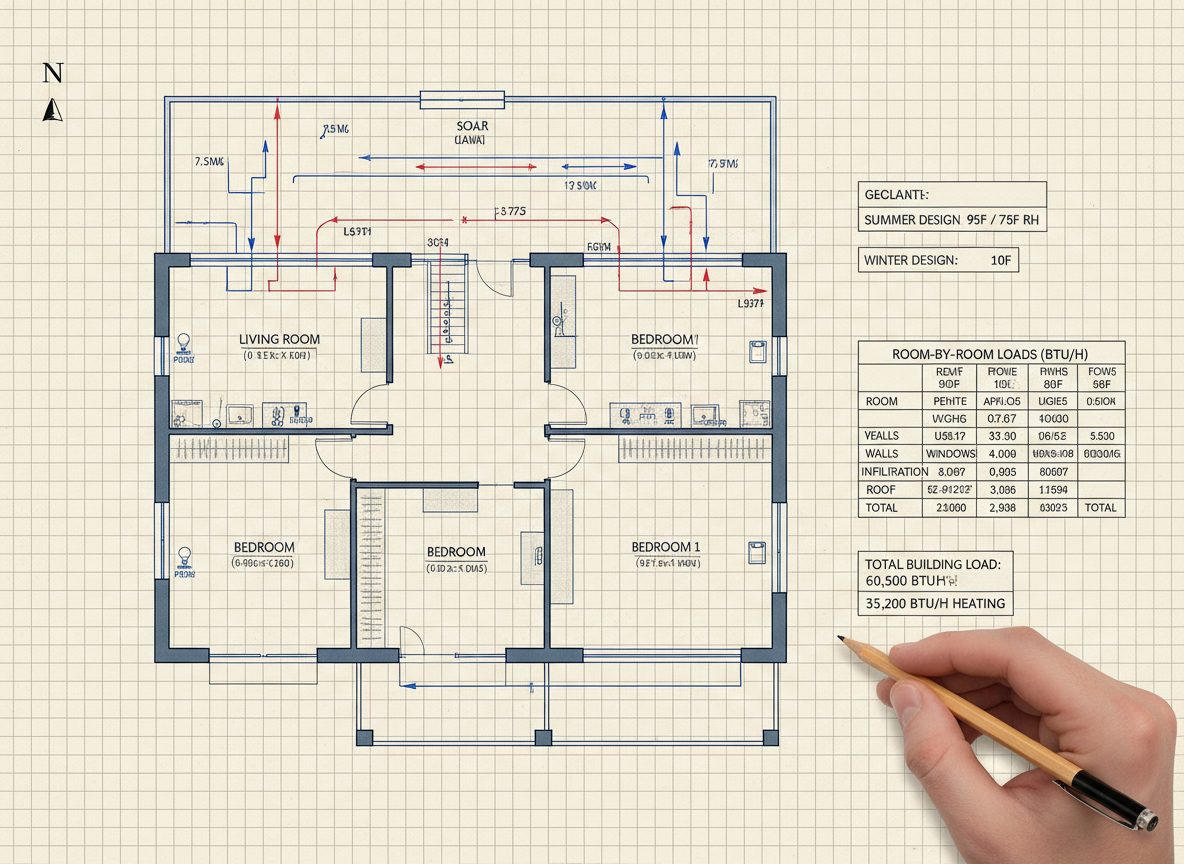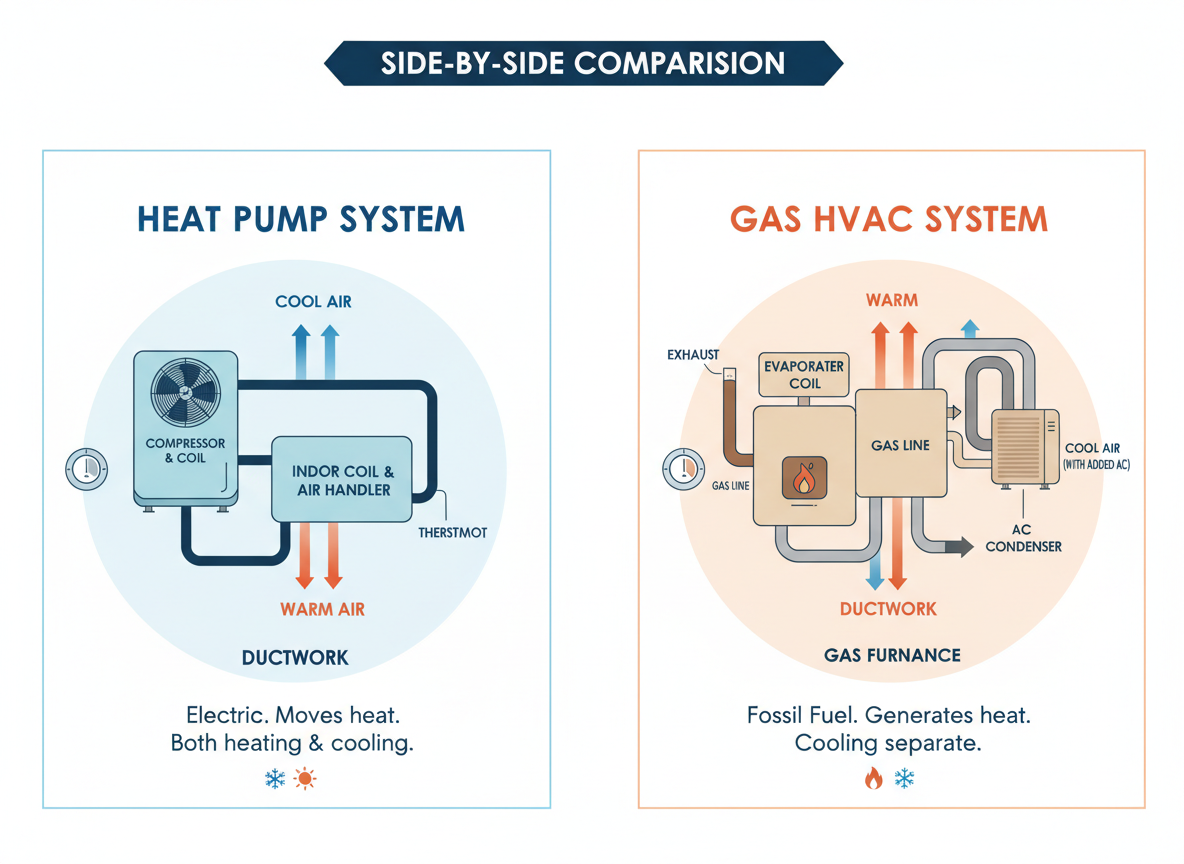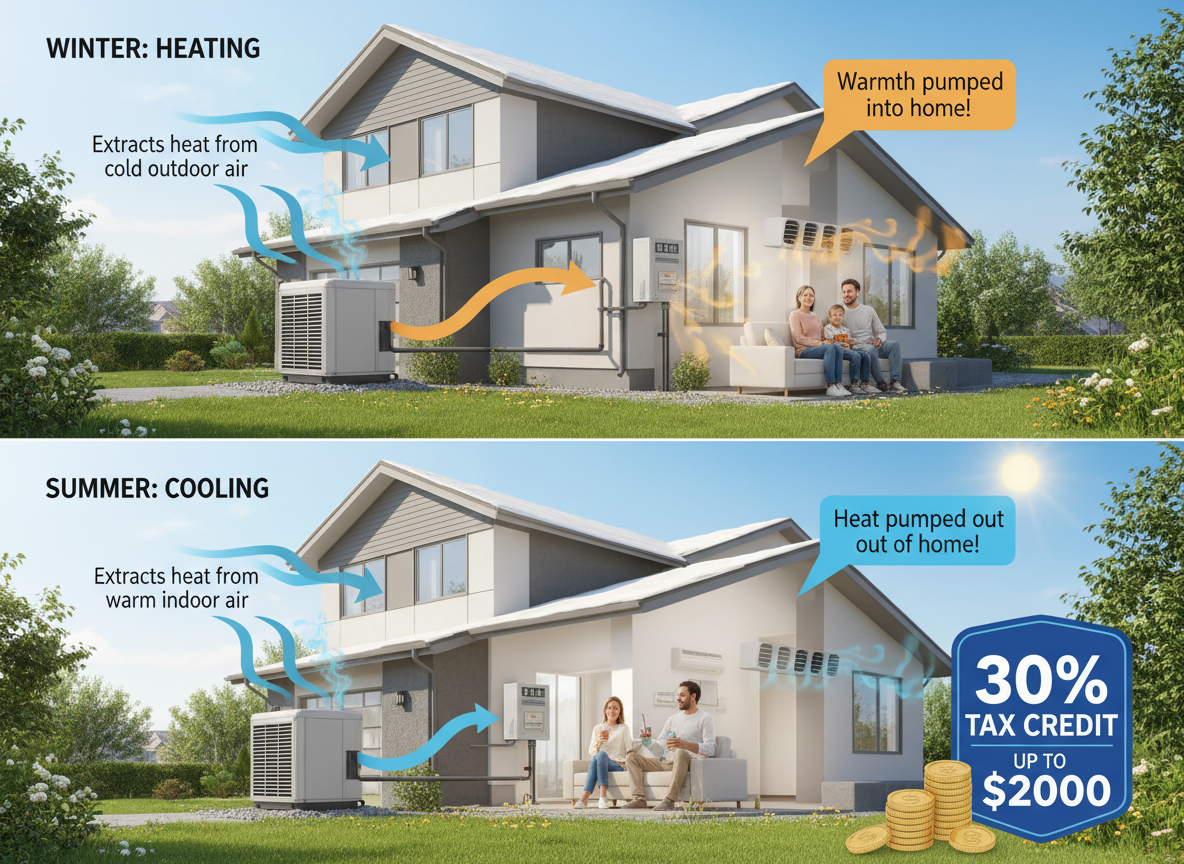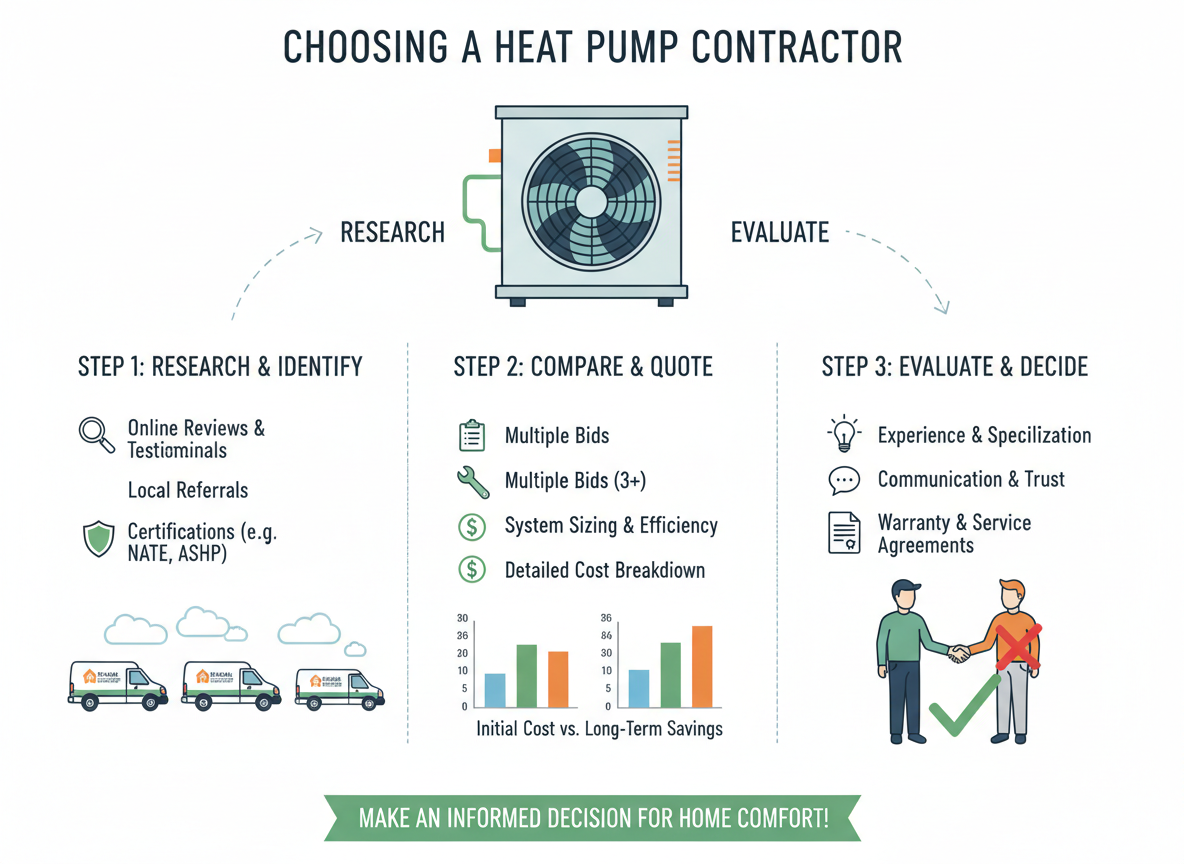
While most homes have a central ac and furnace for cooling and heating that is not the only type of hvac system available. Another option are ductless mini split systems. Most often for homes that do not have a central system or whose central HVAC systems are not enough. They are also a viable option for room additions or in apartments where installing or extending ductwork would not be feasible.
What is a ductless mini split?
Like a central HVAC system, mini splits have two main components: an outdoor condenser and an indoor air handler. A central ac or furnace uses a series of ducts to transport air throughout your home. On the other hand, a ductless mini split uses smaller units placed throughout your home to cool or heat a single room or area of your home. Each individual unit can be operated independently. Keep in mind that if your central HVAC system works fine for your home there is no need to change it out. However, if your central HVAC system is struggling to keep your home comfortable or your home is not able to support a central system, there are several advantages to a ductless system.
Ductless Mini Split
A major installation is not needed because a mini split system does not require ductwork. Only a few small holes are needed to connect copper tubing and wiring to the outdoor unit. Older homes or homes that cannot accommodate a centralized system, can take advantage of a ductless mini split. A ductless mini split can provide enough coverage for an entire home without having to install a duct system. Furthermore, since mini-split systems do not use a ductwork system, they avoid energy loss common in a traditional central system.
Individual Control
A mini split system is small in size and allows for the flexibility of cooling and heating individual rooms. A ductless system allows two different people in a home to individually control their own room to a comfortable setting. Furthermore, mini splits can also be installed with different zones. Each zone can have its own thermostat, allowing for individual control for a comfortable environment.
Lower Electricity Bills
Ductless systems are smaller than traditional central systems. As a result, they operate using less power. The personalized control a ductless mini split allows for can result in lower electricity bills. Furthermore, they deliver hot or cooled air directly into a room decreasing loss in efficiency. This is due to little opportunity for heat or energy loss. You can turn off the air in parts of the home you don’t use like bedrooms on an upper story. As a result your electricity bills will be lower while still maintaining a comfortable environment in your home.
Higher Indoor Air Quality
The quality of indoor air can actually be lower than the quality of outdoor air. For a traditional HVAC system air ducts can have a buildup of dust and other allergens. Whereas, a ductless system offers multi stage filtration that can drastically reduce dust, bacteria, and other allergens.
Quiet Operation
In a mini-split system both the fan and condenser are contained outside the home. These components cause the most noise pollution inside a home in a central system and window air unit. A mini split system is able to keep a home at a comfortable temperature without the added noise.
Contact LA Heating & Air Today!
Give us a call today for a free estimate to install a mini split system in your home. A critical component to benefit from mini-split system advantages is proper installation and system sizing. A ductless system will not work at all if installed incorrectly or the wrong size. Contact us today at (818) 341-3406 to see how we can help with your mini split installation.
Mini Split System Advantages Related Posts:
- Learn More About Our Services
- How To Choose An HVAC Contractor
- Benefits of Quality HVAC System Installation
- AC Replacement Los Angeles
- Ductless Mini Split Air Conditioning Systems






















.png)














